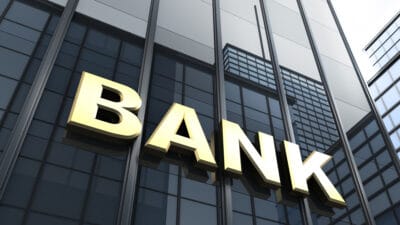Well, it's been yet another week that has seen Commonwealth Bank of Australia (ASX: CBA) shares defy their sceptics and push into uncharted territory to reach another major all-time high.
The new high that CBA shares hit yesterday was significant as it marks the first time in history the ASX bank stock has a '150' at the front of its share price.
Yep, yesterday's session saw the CBA share price climb as high as $150.34 during intra-day trading before the bank closed at $149.79 a share.
I've personally lost count of just how many new record highs CBA shares have hit over the past 12 months.
It's easy to forget, but this time last year, CBA was only trading at just over $100 a share, and that was a big deal at the time. Since November 2023, we've seen Commonwealth Bank break through $110, $120, $130, $140 and now $150 a share.
As of yesterday's close, investors have enjoyed a whopping 31.85% gain in 2024 alone, which stretches to an even beefier 47.85% over the past 12 months. Check it out for yourself below:
So CBA shares have had a truly astonishing and incredibly lucrative 12 months, defying and dumfounding all of their critics who predicted this time last year that the ASX 200 bank stock couldn't go much higher.
But what about today? Are CBA shares still a buy at $150 a share?
Would I buy CBA shares at $150 each?
Well, anyone who has followed my views on this stock would know that the answer is a hard 'no'.
I'll be the first to admit that I have been woefully wrong about CBA shares until this point. I thought the bank was overvalued at $110 a share, and my conviction has only increased alongside the CBA share price.
So why am I so adamant that CBA is far too expensive right now? Well, it comes down to fundamentals. Commonwealth Bank's market capitalisation has swelled by half over the past 12 months.
Normally, a move like this would coincide with a company's profits or even revenues increasing by a similar amount. Yet CBA's underlying business is, to put it generously, treading water.
Share prices and reality
In the bank's 2024 financial year results covering the 12 months to 30 June 2024, CBA reported that its cash net profit after tax fell 2% to $9.94 billion over the period. The bank's revenues were completely flat, yet its expenses rose 3% compared to the prior financial year.
With CBA's current earnings multiple of 25, you'd expect to see at least revenues, but preferably earnings, growing at least 10% per annum by conventional investing wisdom, alongside a clear, multi-year growth runway for even higher profits in the future.
CBA, in my opinion, offers none of that today. Sure, it might manage to incrementally grow its profits in the next few years. But anywhere close to justifying its current valuation? Highly unlikely in my view.
For CBA to continue to deliver returns to investors, it will need to keep growing its share price faster and faster, given its dividend yield is now flirting with the very unbank-like sub-3% mark.
Commonwealth Bank shares might be benefitting from their top spot on the S&P/ASX 200 Index (ASX: XJO), as we have previously discussed, too. But that doesn't inherently create value.
Foolish takeaway
So all in all, I cannot in good conscience tell investors that CBA shares are anything close to a buy today. Even for dividend income. In fact, I think it's more likely that this bank is in a classic hype bubble.
I'm happy to look silly if CBA hits $160 and then $170 a share over the next few months, as its current trajectory suggests it might. But I wouldn't put money on it.









